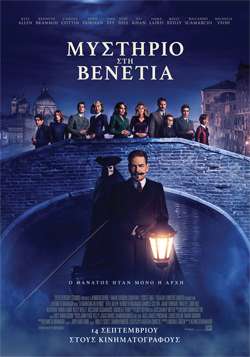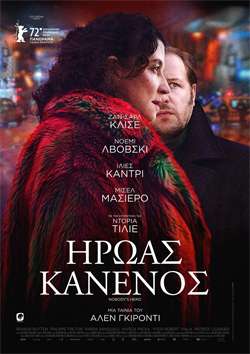
by Takis Garis (@takisgaris)
Episode 10 - Love Marilyn with Passion
> LOVE, MARILYN (4/10)
Liz Garbus in no stranger to my keen interest for doc features, a valuable source of infotainment, especially during the last two decades. It was in 1998, when she was nominated by the Academy for her The Farm: Angola, USA, a project about the mishaps of six inmates in the maximum security State of Louisiana prison. It was last year I saw her delivering an exceptionally intense take on the Bobby Fischer Against the World historic chess match that made the rebellious Fischer an all American myth amidst the Cold War, breaking up the Russian monopoly. In a nutshell Garbus is a veteran with considerable skills. Strangely enough, she has chosen to shed the spotlight on the Marilyn phenomenon, just a year after the lukewarm My Week With Marilyn that boasted an electrifying and justifiably nominated performance by Michelle Williams. I am guessing that the instance being that soon it’s going to be half a century after the ultimate sex symbol’s untimely death has propelled this ambitious project forth.
The filmmaker is stating clearly from the start that new manuscripts by Marilyn herself have been recently found, that are rather revelatory about her personal feelings during turbulent times, such as her early days when she had to pose nude or sleep occasionally with Hollywood strongmen, or her marriages with Joe Di Maggio and most notably her tragic letdown by her marriage with author Arthur Miller that could have led her to the point of no return, meaning her infamous sleep pill addiction. Apart from the cutesy of the new findings, nothing really earth shuttering do we come to learn about her. Furthermore, the worst part is that Garbus has employed a bunch of Hollywood A’ listers to either impersonate Marilyn (THE impossible undertaking) or some key people that played a major role in her brief but fascinating life. Marisa Tomei, Glenn Close, Lindsay Lohan, Evan Rachel Wood, Viola Davis, Jennifer Ehle, Uma Thurman, Elisabeth Banks, mainly overacting in front of green screens; Ben Foster, Jeremy Piven, Paul Giamatti, Adrien Brody, David Strathairn play their lines too to make it kind of sassier, but, what’s the meaning of it all? By implementing the same false strategy as seen in Bob Dylan’s pseudo-doc biography I’m Not There, Love, Marilyn is serving multiplicity as investigation and overreaching as emotional resonance. I saw another film called Much Ado About Nothing yesterday, a fitting title for here, the radical difference being, it is of crucial importance that the eternal goddess of men’s desire should have a documentary to do her real justice. Not this time around.
Liz Garbus in no stranger to my keen interest for doc features, a valuable source of infotainment, especially during the last two decades. It was in 1998, when she was nominated by the Academy for her The Farm: Angola, USA, a project about the mishaps of six inmates in the maximum security State of Louisiana prison. It was last year I saw her delivering an exceptionally intense take on the Bobby Fischer Against the World historic chess match that made the rebellious Fischer an all American myth amidst the Cold War, breaking up the Russian monopoly. In a nutshell Garbus is a veteran with considerable skills. Strangely enough, she has chosen to shed the spotlight on the Marilyn phenomenon, just a year after the lukewarm My Week With Marilyn that boasted an electrifying and justifiably nominated performance by Michelle Williams. I am guessing that the instance being that soon it’s going to be half a century after the ultimate sex symbol’s untimely death has propelled this ambitious project forth.
The filmmaker is stating clearly from the start that new manuscripts by Marilyn herself have been recently found, that are rather revelatory about her personal feelings during turbulent times, such as her early days when she had to pose nude or sleep occasionally with Hollywood strongmen, or her marriages with Joe Di Maggio and most notably her tragic letdown by her marriage with author Arthur Miller that could have led her to the point of no return, meaning her infamous sleep pill addiction. Apart from the cutesy of the new findings, nothing really earth shuttering do we come to learn about her. Furthermore, the worst part is that Garbus has employed a bunch of Hollywood A’ listers to either impersonate Marilyn (THE impossible undertaking) or some key people that played a major role in her brief but fascinating life. Marisa Tomei, Glenn Close, Lindsay Lohan, Evan Rachel Wood, Viola Davis, Jennifer Ehle, Uma Thurman, Elisabeth Banks, mainly overacting in front of green screens; Ben Foster, Jeremy Piven, Paul Giamatti, Adrien Brody, David Strathairn play their lines too to make it kind of sassier, but, what’s the meaning of it all? By implementing the same false strategy as seen in Bob Dylan’s pseudo-doc biography I’m Not There, Love, Marilyn is serving multiplicity as investigation and overreaching as emotional resonance. I saw another film called Much Ado About Nothing yesterday, a fitting title for here, the radical difference being, it is of crucial importance that the eternal goddess of men’s desire should have a documentary to do her real justice. Not this time around.

> PASSION (5/10)
Brian De Palma, has achieved universal claim through his oeuvre, being the forth musketeer after the holy trinity Coppola – Scorsese-Spielberg. It’s short of the present P.T.Anderson-David O. Russell - Wes Anderson kind of pantheon, meaning the best filmmakers of their generation. Carrie, Scarface, Body Double, The Untouchables, yep, those classics were some thirty years ago. Truth is, De Palma is consistently draining his own well, when he’s not exercising in futility, trying some unchartered territory, Redacted (2007) style. This time, he’s back home with euro-noir Passion, banal and contriving, equally much as the title itself suggests so. Unless if that’s the case purposely, a suspicion that the more the film progresses, the truer it seems. Made by franco-german funding, the story, remake of french Love Crime (2010), starring Kristin Scott Thomas and Ludivine Segnier, involves a global advertising firm and its Berlin based branch where a big campaign concerning the launching of a new mobile phone is underway. A trio of firm execs in direct reporting hierarchy (Rachel McAdams - Noomi Rapace – Karoline Herfurt), is falling for each other in varying attraction levels, set up one another for the sake of career advancement and occasionally, whenever the abundant Sapphic foreplay takes a break, two of them have sex with a trivially important male character (a risibly over the edge turn by Paul Anderson).
Hence its Femme Fatale, porn chick-cliché ridden-intrigue, over- flooded 80s style, with a prolonged split screen shot which supposedly is of major value as the revelation of whodunit. Yes, the last half an hour is a descent into laughable dream sequences (the cheapest plot device possible) and twists that totally manipulate the audience –and I don’t mean it the good old fashioned Hitchcockian way. However, when it’s 2012 and De Palma dares to (un)dress McAdams in pure silk black stockings, it’s time to set yourself free; You‘ve been watching a De Palma retrospective, potentially trying to convert new believers to his Cause. Alas, apart from a quite impressive, in a range out of her comfort zone Rachel Mc Adams, the rest feels a bit tedious; Noomi Rapace is not convincing, should do something to step up with her english accent and De Palma must stop plagiarising his previous work. Not an easy task, knowing that, at his 72, a cinematic rebirth is much harder than remaining out of touch; Unless you are Clint Eastwood.
Brian De Palma, has achieved universal claim through his oeuvre, being the forth musketeer after the holy trinity Coppola – Scorsese-Spielberg. It’s short of the present P.T.Anderson-David O. Russell - Wes Anderson kind of pantheon, meaning the best filmmakers of their generation. Carrie, Scarface, Body Double, The Untouchables, yep, those classics were some thirty years ago. Truth is, De Palma is consistently draining his own well, when he’s not exercising in futility, trying some unchartered territory, Redacted (2007) style. This time, he’s back home with euro-noir Passion, banal and contriving, equally much as the title itself suggests so. Unless if that’s the case purposely, a suspicion that the more the film progresses, the truer it seems. Made by franco-german funding, the story, remake of french Love Crime (2010), starring Kristin Scott Thomas and Ludivine Segnier, involves a global advertising firm and its Berlin based branch where a big campaign concerning the launching of a new mobile phone is underway. A trio of firm execs in direct reporting hierarchy (Rachel McAdams - Noomi Rapace – Karoline Herfurt), is falling for each other in varying attraction levels, set up one another for the sake of career advancement and occasionally, whenever the abundant Sapphic foreplay takes a break, two of them have sex with a trivially important male character (a risibly over the edge turn by Paul Anderson).
Hence its Femme Fatale, porn chick-cliché ridden-intrigue, over- flooded 80s style, with a prolonged split screen shot which supposedly is of major value as the revelation of whodunit. Yes, the last half an hour is a descent into laughable dream sequences (the cheapest plot device possible) and twists that totally manipulate the audience –and I don’t mean it the good old fashioned Hitchcockian way. However, when it’s 2012 and De Palma dares to (un)dress McAdams in pure silk black stockings, it’s time to set yourself free; You‘ve been watching a De Palma retrospective, potentially trying to convert new believers to his Cause. Alas, apart from a quite impressive, in a range out of her comfort zone Rachel Mc Adams, the rest feels a bit tedious; Noomi Rapace is not convincing, should do something to step up with her english accent and De Palma must stop plagiarising his previous work. Not an easy task, knowing that, at his 72, a cinematic rebirth is much harder than remaining out of touch; Unless you are Clint Eastwood.







